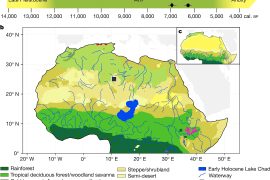
Having too much knowledge can be a curse
Is having too much knowledge a blessing or a curse? Researchers are exploring this question in a recent study led by distinguished economists.
Kaushik Basu, an economics professor at Cornell University, and Jörgen Weibull, a professor emeritus at the Stockholm School of Economics, are the brilliant minds responsible for stirring our curiosity.
The researchers co-authored a compelling paper titled “A Knowledge Curse: How Knowledge Can Reduce Human Welfare,” published in journal Royal Society Open Science.
Knowledge as a curse
The central finding of Basu and Weibull’s research? An increase in knowledge might, somewhat surprisingly, not always be in our best interest.
“This article uncovers the finding that knowledge, even when that does not expand the set of available actions, can impact all of us negatively, what we refer to here as a knowledge curse,” wrote the study authors.
When people leverage this newfound knowledge for personal gain instead of the wider good, the benefits can backfire.
The authors highlight a relevant example: the act of wearing face masks during a pandemic. They suggest that if individuals have a deeper understanding of the cost-benefit analysis associated with mask-wearing, it may lead to less cooperation among those who are primarily focused on their own interests.
Essentially, if people see that the personal costs (such as discomfort) outweigh the perceived benefits (feeling safer or protecting others), they may be less inclined to wear masks, ultimately undermining collective efforts to control the pandemic.
“We assume that a scientific breakthrough that gives us a deeper understanding of the world can only help. Our paper shows that in the real world, where many people live and strive individually or in small groups to do well for themselves, this intuition may not hold. Science may not be the panacea we take it to be,” noted Professor Basu.
Playing the “knowledge curse” game
To illustrate how the “knowledge curse” unfolds, Basu and Weibull propose a theoretical two-player game, dubbing it the Base Game.
Here, each player has two choices to maximize their personal payoff. However, when another set of options is introduced – one potentially leaving the other player with nothing and an alternative offering a tiny win-win – the situation transforms.
Suddenly, a minimal mutual reward becomes the more appealing choice, echoing the classic Prisoner’s Dilemma.
The study thus suggests that more knowledge can lead to worse overall outcomes. But it doesn’t stop there. It further suggests that even when a scientific breakthrough doesn’t introduce any new options but only deepens the understanding of payoffs, both players could end up worse off.
Theoretical into practical
The research isn’t limited to theoretical simulations alone. Basu and Weibull extend their findings to real-world challenges, such as policy crafting without full knowledge of the issue at hand.
Take, for instance, the drafting of a nation’s constitution. It’s an exercise of predicting and mitigating problems likely to emerge in the distant future, under unknown circumstances. According to the authors, such anticipatory laws have indeed been significantly beneficial to humankind.
“By drawing attention to this paradoxical result, the paper urges policymakers and even the lay person to consider preemptive actions, agreements, and moral commitments that we, as human beings, should undertake to avert disasters future scientific advances could cause,” explained Professor Basu.
While recognizing the immeasurable benefits of science, the researchers added a bit of caution. “Science can yield enormous benefits, but we need safeguards,” said Professor Basu. “What those are, we don’t know. But the paper urges us to pay attention to this.”
Call for reflection and action
“Can knowledge be a curse?” Who knew such a question could spawn an intriguing quest laced with paradoxes, dilemmas, and insights? But what’s the takeaway for us, as we navigate an increasingly uncertain world?
Well, let’s ponder on this: Are we willing to acknowledge the double-edged sword of knowledge? Should we, as individuals and communities, consider setting up checks and balances to ensure the benefits of scientific advancements don’t become self-defeating? More importantly, should we reconsider our assumptions about knowledge and wisdom?
To what extent does our knowledge promote self-interest, and when does it serve the collective good? As we continue our journey in an era marked by technological marvels and existential crises alike, these questions become crucial to reflect upon.
Or, as Basu and Weibull put it – we ought to pay attention to this potential “knowledge curse.”
—–
Like what you read? Subscribe to our newsletter for engaging articles, exclusive content, and the latest updates.
Check us out on EarthSnap, a free app brought to you by Eric Ralls and Earth.com.
—–













